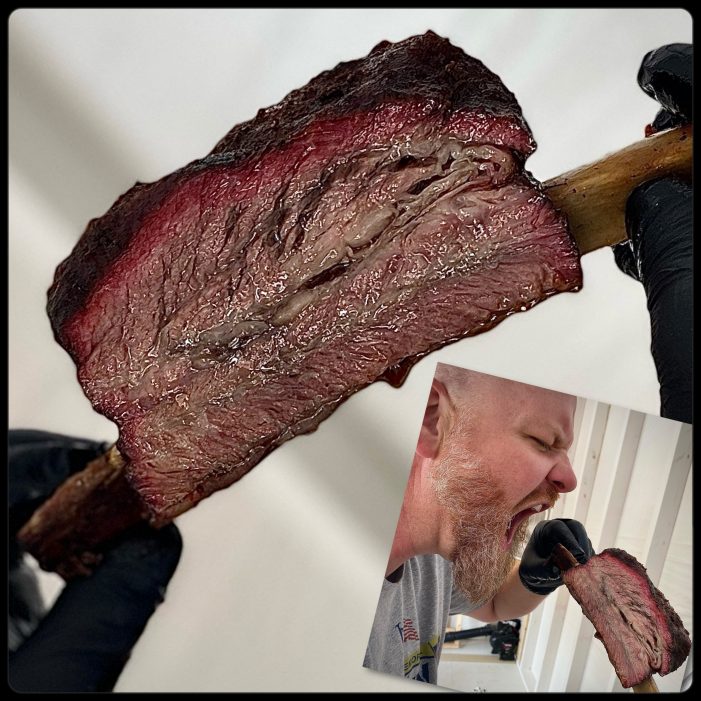Barbecue, often referred to as BBQ, is more than just a method of cooking. It is a culinary tradition deeply embedded in history, culture, and community. From its ancient origins to its role as a quintessential American tradition, barbecue tells a story of adaptation, cultural exchange, and celebration. This article traces the history of barbecue, exploring its early beginnings, evolution, and eventual establishment as a cornerstone of American culture.
The Ancient Origins of Barbecue
The word “barbecue” derives from the term “barbacoa,” a word used by the Taíno people of the Caribbean. The Taíno used wooden frames to cook meat slowly over an open flame or in pits, allowing smoke and heat to impart flavor and preserve the meat. Early European explorers, such as Christopher Columbus, encountered this technique in the late 15th century and brought it back to Europe.
While the Taíno people are credited with the linguistic roots of barbecue, similar cooking methods existed across the globe. Indigenous peoples in Africa, Asia, and the Americas used variations of slow cooking over fire to prepare and preserve meat. Archaeological evidence shows that humans as far back as 1.5 million years ago cooked meat over open flames, marking barbecue as one of the oldest cooking methods in human history.
The Spread of Barbecue Through Exploration and Colonization
As Europeans settled in the Americas, they adopted and adapted indigenous barbecue techniques. Spanish settlers in the Caribbean brought the concept of barbacoa to the mainland, where it spread to areas that would later become the southern United States, Mexico, and Central America.
The 17th century saw barbecue evolve as enslaved Africans brought their own culinary traditions, blending spices, marinades, and cooking techniques with the existing methods. This cultural fusion played a significant role in shaping the flavors and practices of barbecue, particularly in the American South. Enslaved Africans often prepared barbecue at large gatherings, such as plantation events, where it became a communal and celebratory dish.
Barbecue in Early America
By the 18th century, barbecue had become a fixture in the southern United States, tied closely to agricultural and social practices. The availability of livestock like pigs, which were easier to raise and maintain than cattle, made pork the protein of choice. Southern barbecues became large-scale events where entire communities would gather to celebrate, share food, and socialize.
The cooking methods were labor-intensive, involving the construction of pits and the slow roasting of whole animals. Sauces and rubs also began to emerge during this period, often influenced by regional ingredients and cultural tastes. For example, vinegar-based sauces dominated in North Carolina, while mustard-based sauces, influenced by German immigrants, became popular in South Carolina.
The Evolution of Regional Styles
The 19th and 20th centuries saw the development of distinct regional barbecue styles across the United States, each with its own techniques, flavors, and traditions:
- North Carolina: Known for its vinegar-based sauces and focus on whole-hog cooking.
- South Carolina: Distinguished by mustard-based “Carolina Gold” sauces.
- Kansas City: Emphasizes slow-smoked meats with thick, sweet, tomato-based sauces.
- Texas: Famous for beef barbecue, especially brisket, often seasoned with simple salt-and-pepper rubs and cooked over mesquite or oak wood.
Each region reflects the unique agricultural, cultural, and immigrant influences that shaped its barbecue traditions.
Barbecue as an American Staple
Barbecue’s rise as an American icon began in earnest during the 20th century, fueled by advancements in technology and the growing popularity of outdoor cooking. The invention of the charcoal grill in the 1950s, popularized by brands like Weber, made backyard barbecues a staple of suburban life. Barbecue became synonymous with leisure, family gatherings, and celebrations such as Independence Day.
In addition to its role in domestic life, barbecue gained prominence in the restaurant industry. “Barbecue joints” emerged across the country, ranging from small roadside stands to iconic establishments revered for their mastery of the craft. Competitive barbecue also became a phenomenon, with contests like the Memphis in May World Championship Barbecue Cooking Contest attracting enthusiasts from around the globe.
Cultural Significance and Global Influence
Barbecue’s cultural significance extends beyond its culinary appeal. It is a symbol of community, bringing people together for shared experiences. From church picnics in the South to tailgating parties at sports events, barbecue is a unifying force in American life.
The influence of American barbecue has also gone global, inspiring variations and adaptations in countries around the world. For instance, Korean barbecue, which involves grilling meat at the table, has gained immense popularity in the United States, while American-style barbecue restaurants have appeared in Europe and Asia.
Barbecue in the 21st Century
Today, barbecue continues to evolve, blending tradition with innovation. Pitmasters experiment with new techniques, flavors, and equipment, such as pellet smokers and sous-vide methods. Regional boundaries have blurred, with chefs incorporating global flavors like harissa, gochujang, and chimichurri into their barbecue.
Moreover, barbecue has become a platform for celebrating diversity and exploring history. Events like Juneteenth cookouts highlight the role of barbecue in African American culture, while modern food historians trace its complex origins to honor the contributions of indigenous peoples, enslaved Africans, and immigrant communities.
BBQ Is Here To Stay
Barbecue’s journey from ancient fire pits to modern grills is a testament to its enduring appeal and cultural importance. It is a culinary tradition that transcends time and geography, uniting people through shared flavors and experiences. As barbecue continues to evolve, it remains a symbol of community, creativity, and the rich tapestry of history that defines American culture.
For more tips, tricks, recipes and outdoor cooking info, subscribe and stay tuned to our BBQRevolution.com
For more on BBQ in 2025, check out our article on the current trends, here.


You must be logged in to post a comment Login